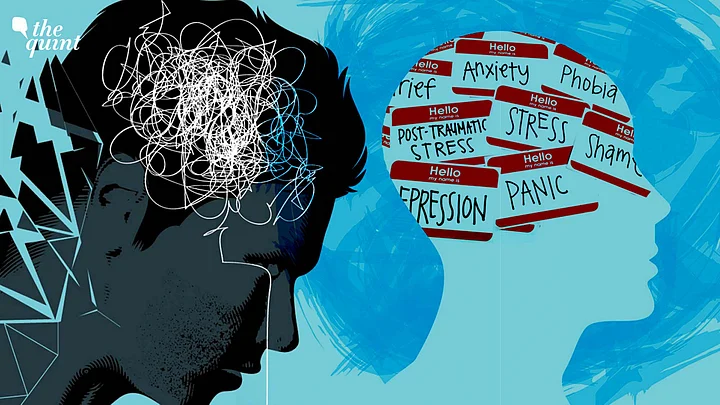(Trigger Warning: Mentions of suicide. If you feel suicidal or know someone in distress, please reach out to them with kindness and call these numbers of local emergency services, helplines, and mental health NGOs.)
The study — 'Variations in psychological disorders, suicidality, and help-seeking behaviour among college students from different academic disciplines' — was conducted on first-year undergraduate students of Ulster University campuses in Northern Ireland and an Institute of Technology in the North-West of Ireland. It highlighted how students of certain streams are more prone to mental health issues than others.
Zulekha Shakoor Rajani, who is a Bengaluru-based educator, counselor and therapist, told The Quint that similar trends can also be observed in India, with respect to some courses, specifically engineering and medical streams.
What exactly does this study say?
Psychology, Arts, Law Students More Vulnerable
The study included four faculties from the above mentioned institutes: Life and Health Sciences (L&HS), Business School, Arts, Humanities and Social Sciences (AH&SS) and Computing, Engineering and the Built Environment (CE&BE). The results from study of students at these faculties were further analysed to determine the courses with highest number of students with mental health disorders, attention-deficit/hyperactivity disorder (ADHD), substance abuse, suicidal behaviour.
The analysis of the study showed that students from the School of Psychology reported elevated rates of a range of mental health problems and suicidal behaviour.
Apart from psychology students, students who pursued arts also showed showed signs of mental health problems.
Almost a fifth of art students also had clinical levels of depression in the previous 12 months and were most likely to engage in self-harm or have attempted suicide, it added.
The study also showed that law students were most likely to endorse suicidal ideation or plan. They also reported the highest alcohol misuse rates .
Low Rates of Mental Health Problems in Engineering Students & Nursing Students
The researchers further found out that engineering students reported low rates of mental health problems and suicidal behaviour, with particularly low rates of panic disorder and no suicide attempts reported.
However, computer science students reported rates of depression and suicidal behaviour that were higher than average.
What's noteworthy is that the engineering department is dominated by male students.
Researchers, further citing another study, pointed out that male college students tend to have poorer mental health literacy and are poorer at recognising symptoms of depression, therefore, male-dominated courses may have lower levels of help-seeking and they may score lower on self-report questionnaires due to poor recognition of symptoms.
As per the study, nursing school students reported low rates of of all disorders and suicidal behaviour. On further analysis, it was found that students pursuing mental health nursing had the lowest rates of depression, but the prevalence rates of other disorders were higher than the rates found in general nursing, the study added.
Seeking Help: How Numbers Stack Up
All students, who said that they had not received any treatment any mental health treatment in last 12 months, were asked if there was ever a time in last one year when they felt that "might need psychological counselling or medication for any emotional or substance use problems."
Only 11.3% students stated that they felt that they may have needed help.
Psychology students were the most likely to say that they felt that they needed help for their problems (21.7%), while only one engineering student felt they needed help.
That study shows that despite having an awareness about their mental health problems, many Psychology students did not seek help.
Moreover, males may be less likely to admit to having a psychological problem, due to stigma, internalised traditional masculine norms and fears of looking weak.
"When someone comes to us, the first thing we check is how strong is their support system. I have witnessed that women have better support system of their friends, of sisters, or mothers. Our society is so stereotypical in nature that a man cannot really cry. This kind of a hinderance, this masculinity, all these things actually jeopardises men who seek help related to their mental health," Zulekha Shakoor Rajani told The Quint.
"Counselling is optional for students right now. It should me made compulsory for every student in all courses. Because people take time to open up in front of counsellors. After visiting the college counsellors a few times, the students will start opening up to them, and eventually will be able to get help," she added.
